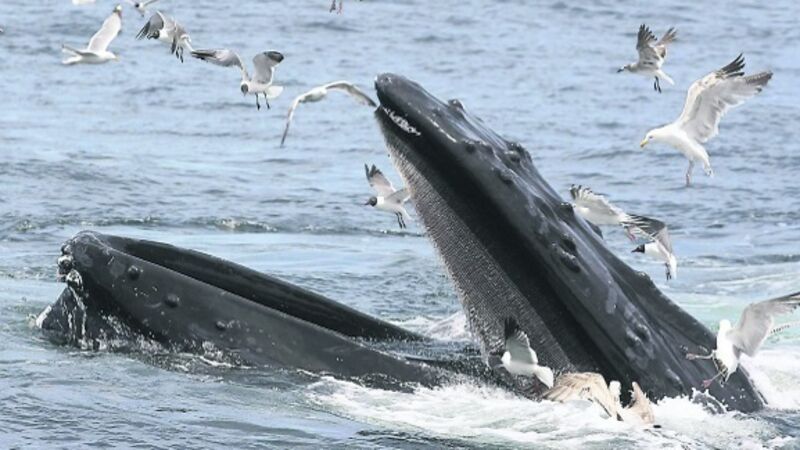A look at the huge appetites of whales

Gulls and gannets converge on hunting whales to feed on ‘the scraps which fall from the rich man’s table’. The huge mammals are an indirect source of food for birds but are there dangers in working with them? Do whales even eat seabirds?
Conor Ryan, Padraig Whooley, Colin Barnes and Simon Berrow of the Irish Whale and Dolphin Group (IWDG) raise these questions in the current edition of Irish Birds.











